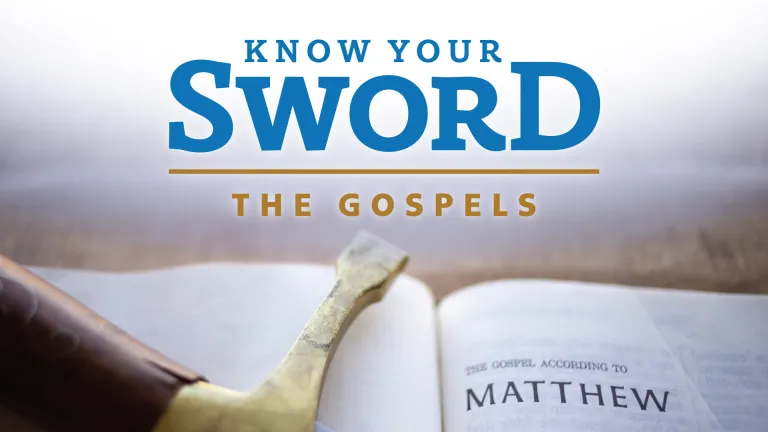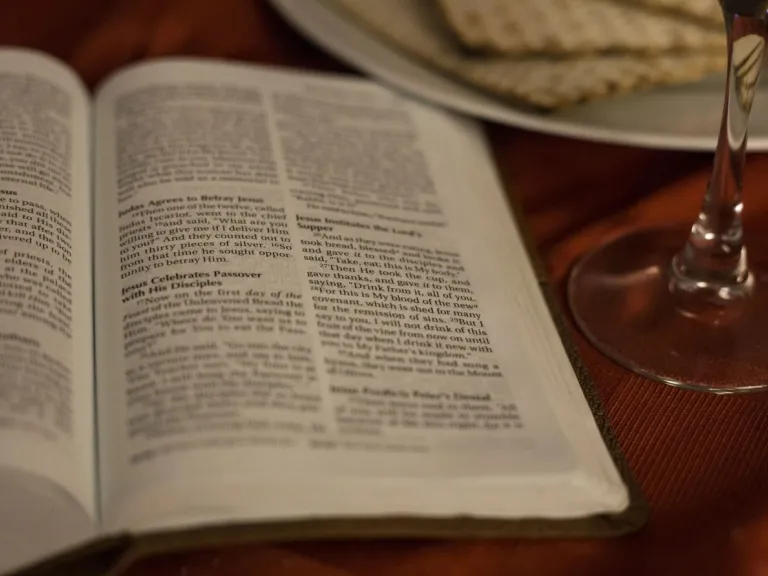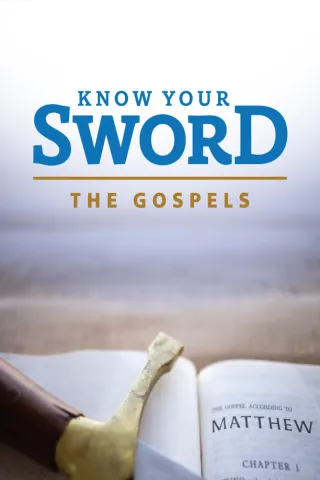Gospels Part 012

In the last lesson, we discussed the fact that each of the festivals of the Bible teach us about Jesus Christ’s role in God’s plan to offer salvation to all of humankind. Before that, we covered how Passover is all about Jesus Christ’s giving His life as a sacrifice to pay the penalty for our sins so that we can be forgiven and reconciled to God to receive His gift of eternal life.
This leads us right into the next of God’s festivals, the Feast of Unleavened Bread. The first and last days of this seven-day Feast are Holy Days, the first two of God’s annual Sabbaths that fall in the spring of the year in the northern hemisphere (in the southern hemisphere, where the seasons are reversed, these fall in the autumn of the year).
So how does this festival teach us about Jesus Christ?
This Feast is clearly spelled out in Leviticus 23:6: “And on the fifteenth day of the same month [the same month as Passover] is the Feast of Unleavened Bread to the LORD; seven days you must eat unleavened bread.”
In the Old Testament, the Days of Unleavened Bread were understood to be a remembrance of what occurred after the Passover night, when all the firstborn of the Egyptians died. The next morning, the Israelites packed their belongings and traveled to a nearby gathering place, ready for departure. That evening, they left Egypt by night. But before that evening, they baked unleavened bread because they were in a hurry to leave and didn’t have time to wait for the bread dough to rise.
What does this Feast have to do with Christ? What does it teach us about Him?
Let’s notice John 6:32-35. The events described here take place just before the Passover and Feast of Unleavened Bread, and Jesus miraculously multiplies the boy’s loaves and fishes to feed thousands of people. Then a discussion follows about manna and bread. Notice what Jesus says:
“Then Jesus said to them, 'Most assuredly, I say to you, Moses did not give you the bread from heaven, but My Father gives you the true bread from heaven'" (verse 32).
Jesus now plays off the fact that the Feast of Unleavened Bread is about to begin and addresses their statement about God having given the Israelites manna to eat in the 40 years in the wilderness. So He first says it wasn’t Moses who gave the manna, but God who gave the manna. And further, that manna was only symbolic of something much better, which was the true Bread from heaven that would sustain them because it came from God. And then He says:
"For the bread of God is He who comes down from heaven and gives life to the world" (verse 33).
He tells the people that God is offering something much better than physical manna. He is going to give the Bread of God that gives life to the world—not just to the Israelites as happened with the manna, but to the entire world.
"Then they said to Him, 'Lord, give us this bread always.' And Jesus said to them, 'I am the bread of life. He who comes to Me shall never hunger, and he who believes in Me shall never thirst.'" (verses 34-35).
And He speaks here with authority, claiming to be the true Bread from heaven. He uses three different phrases. First He talked about “Bread from heaven.” Then He mentioned “Bread of God.” Then He said “Bread of life.” He explained that this Bread that God would provide would do much more than satisfy their physical hunger. It would satisfy the much deeper spiritual hunger, filling the spiritual vacuum that exists in every human being.
What He’s saying is that just as physical bread was essential for physical life, He as the Bread of God, the Bread from heaven and the Bread of life is essential for our spiritual and eternal life! He is so essential that without Him we do not have and cannot have eternal life.

The Feast of Unleavened Bread is all about taking in the unleavened Bread from heaven, the Bread of God, the Bread of life. And if we do that, we can fulfill the spiritual symbolism of avoiding leavened bread—of purging out the old leaven of malice and wickedness, and living a new life based on continually taking in the true unleavened Bread of Life, Jesus Christ.
The apostle Paul wrote to the church in Corinth to explain the spiritual symbolism of unleavened bread. When the Church members in Corinth began to allow and accept sin in the church there, he told them in 1 Corinthians 5:6-8:
"Your glorying is not good. Do you not know that a little leaven leavens the whole lump? Therefore purge out the old leaven, that you may be a new lump, since you truly are unleavened. For indeed Christ, our Passover, was sacrificed for us" (verses 6-7).
As Paul states, it is the sacrifice of Jesus Christ that removes our sins, and so we become “unleavened” in a spiritual sense. So, again, Jesus Christ is the focus of this Feast. It points to what Jesus would do for all of us in cleansing us of sin and helping us to live free of sin. In verse 8 Paul told the Corinthian brethren that they should continue to keep this Feast that followed the Passover:
"Therefore let us keep the feast, not with old leaven, nor with the leaven of malice and wickedness, but with the unleavened bread of sincerity and truth" (verse 8).
We see, then, that the spiritual meaning of the Days of Unleavened Bread was revealed. Its deeper significance wasn’t ultimately found in what had occurred in the Old Testament, but in Jesus Christ, the sinless Savior, who cleansed us of our sins and revealed to us the way to be spiritually “unleavened” before God.
So Jesus Christ is at the center of this second Feast of the Lord, too. With His help, He makes it possible for us to be spiritually “unleavened” before God!
If you’d like to learn more about this biblical Feast and its meaning, search the UCG website for “Feast of Unleavened Bread.” You’ll find dozens of articles and sermons explaining its meaning in depth. And to learn more about all of God’s Feast days, download or request our free study aid God’s Holy Day Plan.
© Scott Ashley, 2025. All rights reserved.



